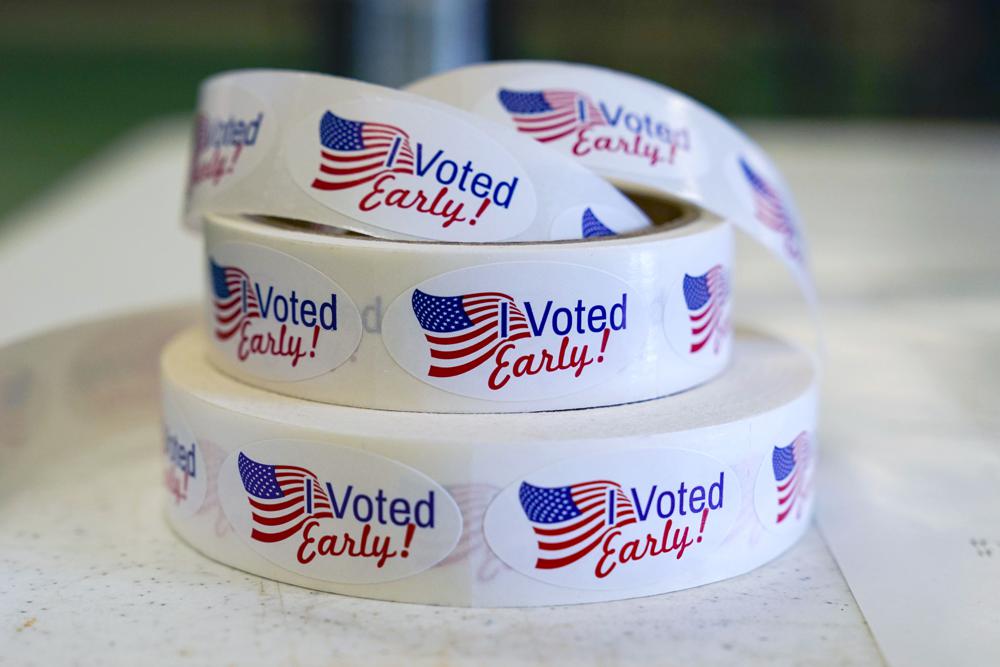Based off of discussion in a House Transportation Committee meeting on Tuesday, lawmakers are still unsure how or why a $500,000 spending cap on light rail projects was included in the budget at the end of an extraordinarily-long legislative session last year.
Mecklenburg County Republican William Brawley said during the committee meeting had the cap been introduced prior to the end of the session, it likely would not have been implemented.
“Let’s be candid guys,” Brawley said, “in September, we would’ve swallowed a lot of bitter pills to get out of town.”
The item is of local interest because it was initially described as a “project killer” for the Orange – Durham Light Rail project. The $1.6 billion estimated cost of the light rail line is being split between local, state and federal dollars. The federal government would ultimately be asked to pay half of the overall cost with the remaining funding being split between the local and state levels. The local 25 percent would be funded through a sales tax increase approved by the vote of Orange and Durham County residents.
Wake County Republican Nelson Dollar said “it was bad policy when it was done last year, and I appreciate the opportunity to fix it this year.”
But not all members of the committee shared the enthusiasm to repeal the cap.
“I think we’re opening the door to the possibility of taking transportation moneys that could be better used some place else in the state for a light rail project,” said Onslow Republican George Cleveland.
The project was one of the first to go through a data-driven process as part of the Strategic Transportation Investments law passed by the General Assembly in 2013.
“The idea was to make decisions on funding based on data and local input after open hearings,” Brawley said. “It was to take out of transportation funding the idea that we decide up here how all the money’s spent based on who can get the most votes.”
Granville and Person County Republican Representative Larry Yarborough, who was elected in 2014, said he had not seen the data that supported the light rail project.
“I haven’t seen any data here that supports the concept of light rail,” Yarborough said. “Everything I know about it is that it’s a feel-good proposition that results in a very expensive cost per passenger mile and it benefits a very small area of the state.
“I know the people in my district would not benefit from a light rail built somewhere else.”
Brawley said that rejecting the data collected to allocate transportation dollars and reverting back to picking and choosing which projects to fund would be a negative for the state as a whole.
“If we leave this in primarily to kill a particular project in Durham and Orange Counties, what we’re really saying is we’re going to go back to, ‘We’re going to fund the roads we want, whenever we want to fund them. And we’re not going to worry about data, and we’re not going to worry about how we spend our money based upon what is the most bang for the buck for the citizens of North Carolina for every dollar we spend.’”
The bill passed through the committee and is now scheduled to be heard in the House Appropriations Committee. Several members of the Senate, meanwhile, have introduced an identical bill to repeal the light rail cap.
Related Stories
‹
![]()
Orange County Facing April 30 Deadline for Light Rail FundingAfter Orange County committed in December to consider spending an additional $40 million over a 10-year period on the Durham-Orange Light Rail project, the commissioners once again have a major decision to make. The Federal Transit Administration is looking for additional documentation to ensure the project can continue as planned. GoTriangle general manager Jeff Mann […]
![]()
GoTriangle: Additional Local Funding May Not Be Necessary for Durham-Orange Light RailFunding the Durham-Orange Light Rail project has been a contentious topic in recent months. But GoTriangle now says it may only need additional local funding as a safety net for the project – not as an integral piece of the funding. GoTriangle staff presented the updated plan to the organization’s Board of Trustees on Wednesday. […]
![]()
Orange County Commissioners Vote to Move Forward with Light Rail ProjectAfter a long night of discussion and debate, the Board of Orange County Commissioners passed a memorandum of understanding that says the county will look into the possibility of paying an additional 40 million dollars over a 10-year period towards the Durham-Orange Light Rail Project. County attorney John Roberts said the memorandum does not require […]
![]()
Orange County Commissioners to Discuss DOLRT Funding Letter of Intent MondayThe proposed light rail project connecting Orange and Durham Counties has been in the planning phase for several years but has seen its funding model shift multiple times during that stretch. Voters in each county passed a sales tax increase to pay for 25 percent of the project. Another 25 percent was originally going to […]
![]()
Work Continuing on Durham-Orange County Light Rail Amid Budgetary ConcernsGoTriangle is continuing working with local universities, health care institutions, government and the private sector to continue its plans for a Light Rail that would potentially travel between Durham and Orange Counties – even while budgetary concerns remain due to a cap on light rail spending put in place by the General Assembly. After receiving […]
![]()
GoTriangle 'Optimistic' Light Rail Funding Will Be Restored After Surprise Alternate Cap from SenateThe Durham – Orange Light Rail project may not be out of the woods quite yet under the budget proposals from the North Carolina legislature. The 17-mile rail proposal has an estimated price tag of nearly $1.6 billion and would be funded at 50 percent with federal dollars, 25 percent from the state and 25 […]
![]()
House Budget Clears Path for Durham-Orange Light RailAs part of the $22 billion budget proposal that has made its way through the North Carolina House, the cap on light rail spending that was put in place at the end of the long legislative session last year has been removed. The budget passed its third reading in the House on Thursday by a […]
![]()
Light Rail Project Clears HurdleThe light rail project connecting Chapel Hill and Durham has cleared a major hurdle. Natalie Murdock is the spokesperson on the project for GoTriangle. She says the Federal Transit Administration signed off on the Draft Environmental Impact Statement last Thursday. “Essentially, this allows us to go forward and show the public everything that we’ve been working […]

2025 Early Voting in Orange, Durham and Chatham Counties is Underway; Here's Where to GoEarly voting in North Carolina begins on Thursday morning, helping bring the local election season to a crescendo across 16 days.

Durham Tech Announces Contract Extension for President J.B. Buxton Through 2029Durham Technical Community College President J.B. Buxton received a contract extension ahead of the new academic year, with his tenure now set to run to at least 2029.
›


